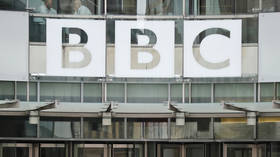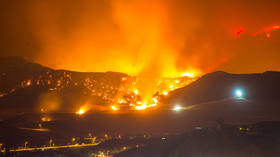Western media pull out of Russia

The BBC, CNN, ABC News, CBS News, and Bloomberg have suspended operations in Russia after President Vladimir Putin enacted a law that makes the deliberate spread of disinformation punishable by up to 15 years in prison.
After the anti-fake news law was approved on Friday, CNN said it would “stop broadcasting in Russia while we continue to evaluate the situation and our next steps moving forward.”
Bloomberg – the news agency founded and owned by US billionaire Michael Bloomberg – similarly said it would “temporarily suspend the work of its journalists inside Russia” and accused Moscow of criminalizing “independent reporting.” The New York-based outlet claimed that the crackdown on disinformation would make it “impossible to continue any semblance of normal journalism inside the country.”
Like Bloomberg, the UK state-funded BBC argued that the law “appears to criminalize the process of independent journalism,” and announced that its Russian-language coverage would continue only from outside Russia.
Spokespersons for ABC and CBS News announced that the networks would not broadcast from Russia while they “assess the situation,” with ABC News calling the legislation a “censorship law.”
The Washington Post responded to the introduction of the new law by removing authors’ names and other data from their Russia-originated publications.
“Some internal news: In response to Putin’s threats against reporters in Russia, The Washington Post will remove bylines and datelines from stories produced by our journalists in Russia. Goal is to ensure staff’s safety,” Paul Farhi, one of its writers, said on Twitter, adding that he had “never seen anything like this” during his career.
An hour later, Farhi amended his last statement, recalling that, during the First Gulf War, Post reporter Caryle Murphy had got trapped in Kuwait and had therefore covered the Iraq invasion while in hiding.
“Her stories were published w/o bylines, for obvious reasons. Caryle won a Pulitzer for her work,” Farhi said.
Those charged under the new media law could be imprisoned for up to 15 years if they are found guilty of knowingly and deliberately spreading false information about Russia’s conflict with Ukraine in a way that significantly damages national security. Anyone found guilty of defaming the Russian army could also receive a fine of up to $13,500 or three years in prison, while those who call for anti-Russian sanctions could receive fines of up to $5,000.
Vyacheslav Volodin, the chairman of the State Duma, argued that the law was necessary “to protect our soldiers” and “protect the truth.”
“American social networks, controlled by Washington, launched an information war against Russia,” Volodin declared, adding, “It is necessary to make a decision to combat the spread of fake information.”
Moscow maintains its military offensive in Ukraine is a “special operation” aimed at the “demilitarization” and “denazification” of the country in the name of protecting the people of the two Donbass republics Russia recently recognized. Kiev said the attack was unprovoked, insisting it had not been seeking to retake Donetsk and Lugansk by force. The two republics split from Kiev back in 2014 in the aftermath of the Maidan coup, which ousted Ukraine’s government, with intermittent fighting continuing in the years since.













